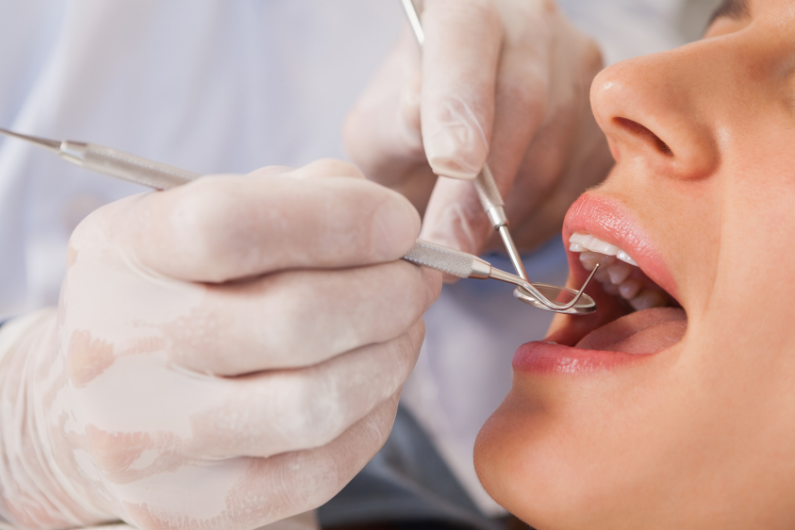Short Answer:
Most dental professionals recommend visiting the dentist every six months for a regular check-up and cleaning, although some people may require more frequent visits depending on their oral health.

Understanding the Importance of Regular Dental Check-Ups
Routine dental visits are essential for maintaining good oral hygiene and preventing dental problems before they become serious. During a check-up, a dentist can identify early signs of cavities, gum disease, or other oral issues that may not be visible or painful yet. These preventive measures not only save money in the long term but also preserve your natural teeth.
Factors That Influence Your Dental Visit Frequency
While the standard recommendation is every six months, some individuals may need to visit the dentist more or less often. The frequency depends on several factors, including:
-
Your oral hygiene habits – If you brush and floss regularly and maintain a healthy diet, you may not need visits as frequently.
-
Medical conditions – People with diabetes, dry mouth, or a weakened immune system may require more frequent check-ups.
-
History of dental issues – If you’ve had gum disease, tooth decay, or frequent dental work, your dentist may suggest quarterly visits.
-
Age – Children and older adults often require more frequent monitoring to manage developmental or age-related oral health concerns.
What Happens During a Routine Check-Up?
A standard dental check-up typically includes:
-
Teeth cleaning to remove plaque and tartar buildup
-
Examination of teeth and gums for signs of decay or infection
-
X-rays if needed, to detect issues not visible to the naked eye
-
Oral cancer screening and general assessment of your mouth and jaw
These steps ensure your oral health is closely monitored and issues are addressed early on.
Can You Skip Dental Visits If You Don’t Have Any Pain?
No, skipping dental visits just because you aren’t in pain is not advisable. Many dental issues, like gum disease or cavities, can progress without noticeable symptoms. By the time pain occurs, treatment may be more complex or expensive. Regular visits can catch problems at their earliest stage.
Benefits of Consistent Dental Check-Ups
-
Prevents cavities and gum disease
-
Saves money on future dental treatments
-
Helps maintain fresh breath and clean teeth
-
Keeps your overall health in check, as oral health is linked to conditions like heart disease and diabetes
-
Builds a trusting relationship with your dentist for better long-term care
What to Ask During Your Appointment
Making the Most of Your Dental Check-Up: What to Ask
A dental check-up isn’t just about sitting back while your teeth are examined and cleaned — it’s also an opportunity to learn more about your oral health and how to improve it. Being proactive and asking the right questions can help you understand your dental condition better and take control of your hygiene habits. Here are some essential questions to ask during your appointment, along with why they matter:
1. Am I brushing and flossing correctly?
You may think your brushing and flossing habits are effective, but small mistakes in technique can lead to plaque buildup, gum irritation, or even enamel damage. Ask your dentist or hygienist to demonstrate the proper technique. They can show you the best way to angle your toothbrush, how long you should be brushing, and how to clean those hard-to-reach areas effectively. Similarly, they might recommend specific flossing tools or a water flosser if you struggle with regular string floss.
2. Do you see any signs of gum disease or cavities?
Cavities and gum disease are two of the most common oral health issues. Early-stage problems often don’t cause pain or visible symptoms, so you won’t always know if something’s wrong. By asking this question, you give your dentist the opportunity to explain any early warning signs they’ve observed and suggest steps you can take to address them before they worsen. This might include using a special mouthwash, adjusting your diet, or scheduling a follow-up treatment.
3. Are there any areas I should pay extra attention to?
Sometimes certain parts of your mouth may require more attention than others. Your dentist might notice plaque building up behind your back molars, receding gums near your front teeth, or enamel wear on specific surfaces. They can guide you on how to focus your brushing and flossing efforts to protect those areas more effectively, helping to prevent issues from developing.
4. When should I schedule my next visit?
Although six months is the standard recommendation, your personal dental needs might mean more frequent visits. Your dentist will advise you based on your oral health condition, lifestyle habits, or medical history. Don’t assume it’s always six months — confirm the right timing for you.
Conclusion
Regular dental check-ups are crucial for maintaining your oral and overall health. Even if you feel fine, it’s best to visit your dentist every six months or as recommended based on your individual needs. This habit helps detect issues early, keeps your teeth clean, and supports your long-term well-being.
For more information visit Rouse Hill Dentist.


